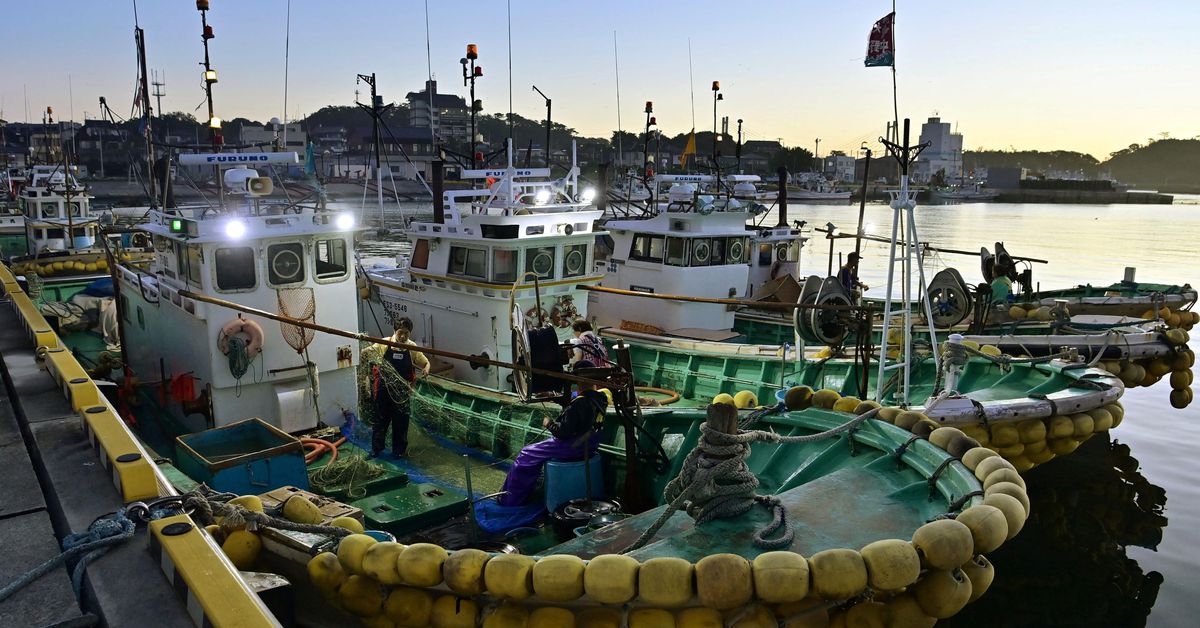Japan’s fisheries agency said on Saturday fish tested in waters around the wrecked Fukushima nuclear plant did not contain detectable levels of the radioactive isotope tritium, Kyodo news service reported.
I work with radiation. Radiation is hard for lay people to understand, and they are all afraid of it.
The technical language in this article is not helpful for lay people, but it is for me.
You get a much larger dose of a much worse kind of radiation exposure by eating a banana than drinking a liter of this seawater.
And things like Brazil nuts, your basement, living at altitude or near certain kinds of rocks, flying, smoke detectors, or dental X-rays are much, much worse.
Not to mention higher dose medical procedures (CT, PET, SPECT, and radiation therapy). Those, however, are borderline dangerous, but there’s a trade-off. Your radiation therapy may lead to secondary cancer down the line, but your primary cancer is killing you right now.
These articles also need to mention that the actual experts – the people who know what they’re doing and understand this – agree this is the best and safest course of action. I’m not that kind of person, but I know plenty of them. I assure you, they are very cautious.
Ok but, people aren’t talking about drinking the sea water, are they? It’s about eating fish and sea vegetables that are living/growing in it. Do we know what the effect of eating these foods will be?
A fish will be consuming a lot more than a litre of water over its lifespan.
Edit: You could answer my question instead of downvoting me…
Isn’t the problem as much with the radiation itself as consuming radioactive elements that will stay in your body likely to the rest of your life and provide radiation from the inside?
Tritiated water mostly has a 12 day lifespan in your body, at max. Some of it may be used as tritium instead of normal hydrogen in putting things together, but it’s not like other nasty radionuclides.
Yup. The other stuff has been removed. All that’s left is the actual water, which is radioactive.
That 12 days is not a half life, but it is how long it stays in the body before you pee it out. This only matters if you had a single incident of drinking the water or eating contaminated food not if you are constantly exposed to it then each time you consume affected foods you know it stays with you for about 12 days and small part of it stays with you forever as your body doesn’t see the difference between tritium and hydrogen, so it will be happy to use the radioactive version, which could increase your chances of cancer as well as your future generations.
Yeah, that’s why I have concerns about constant tritated waste dumping from an active plant. Not so much in this case. It’s a very small amount over a very long time.
Edit: and in regards to it using it as hydrogen, even in that case, the tritium will likely damage whatever it’s made into and quickly turn back into water.
Maybe this one act considered independently isn’t that bad. What I don’t like is the “dilution is the solution to pollution” attitude that comes from acceptance of this type of activity.
All radioactive elements decay. Tritium has a half life of about 12½ years and it turns into ordinary hydrogen. If they keep releasing tritium at the same rate for a long time, it will reach a maximum concentration in about 25 years (or maybe less, depending on how accurate my fuzzy math is). Once it reaches that point, it will decay as fast as it’s released.
It’s also worth noting that if they want to release the tritium at a constant rate, they’ll have to gradually increase the rate at which they release the contaminated water, because the tritium is already decaying in storage.
For tritiated water, it largely is. For other bioaccumulative radio-isotopes it’s not. There’s still potential for concerns. But I think this release is good.
If the water is fine, why does it have to be released?
Also, would the water from the plant be safe to swim in, or only once it’s diluted with the sea?
This is just dumb. They just started releasing the contaminated water and they will keep doing so for a long time. This will lead to ever increasing concentrations of tritium which will then be further concentrated in living organisms. So it’ll take quite a while for effects to be seen.
isn’t this supposed to be mitigated by the fact that the tritium eventually blends into the larger ocean such that the concentration remains in harmless levels at the end anyway?
The half-life of tritium is 12.33 years, so no, it won’t be ever-increasing. In 12.33 years, there will be half as much.
Date of meltdown: March 11, 2011.
Removed by mod
Good thing it’s not just Japan saying this then. Everyone that knows what the hell they’re talking about are.
If it was Japan’s word on it, I wouldn’t trust it either. But the measurements are a solid science that’s easy to do, and hasn’t been disputed
Removed by mod
Cynicism is a lazy cognitive shortcut that leads to wrong conclusions almost as often as naivete does.
Removed by mod
I’m not denying anything. You’re the one ignoring everyone who actually knows what they’re talking about.
Removed by mod





